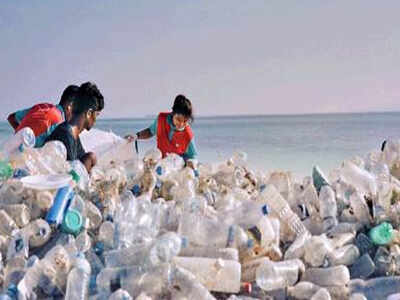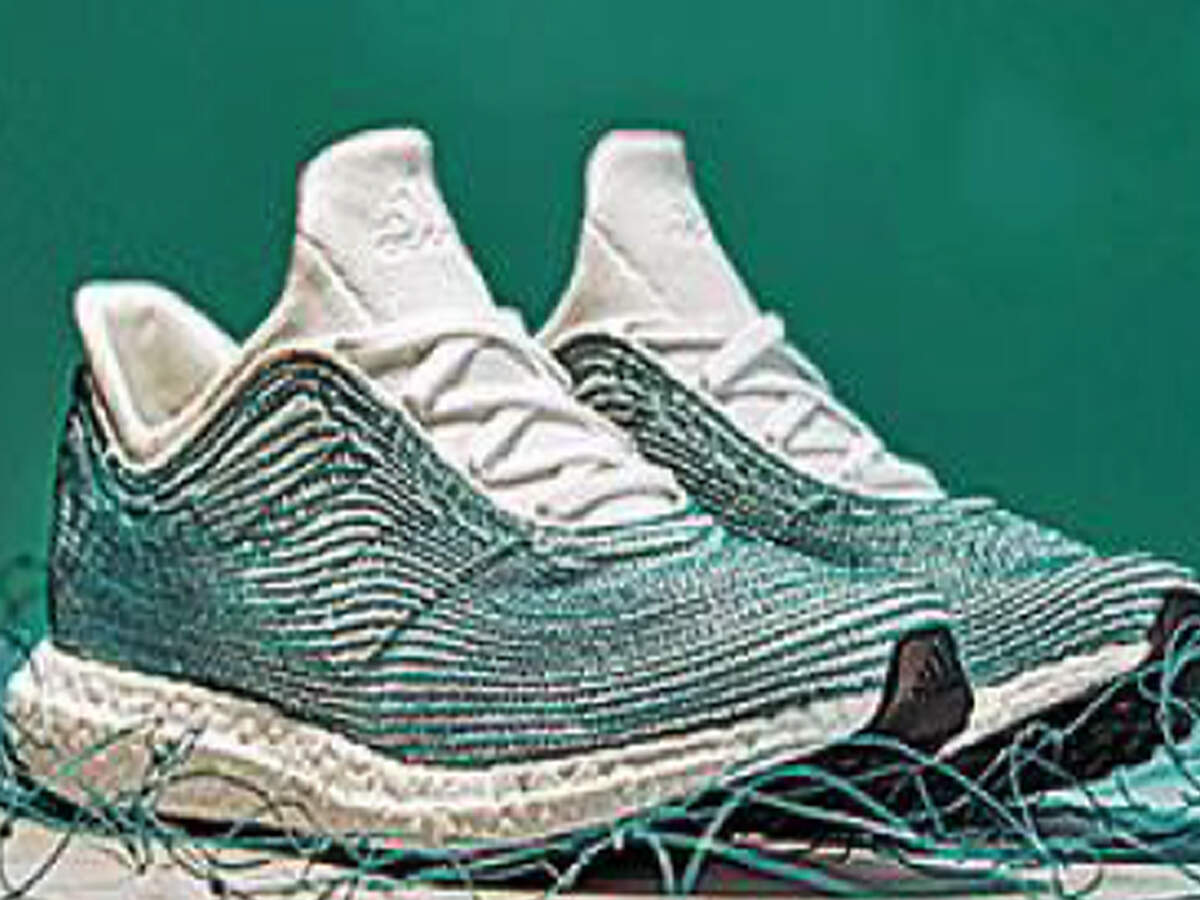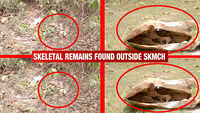
Don't be alarmed if you're told that the running shoes or t-shirt in your closet was once a plastic bottle of soda that you drank and tossed into the ocean. This isn't a make-believe tale of the ocean's revenge nor a gimmick but a way of turning the scourge of plastic pollution into circular economy where discarded plastic can be reused, recycled and composted.
The impact of plastic on the ocean is heart breaking. A 2017 report by the United Nations revealed that about 8 million tons of plastic enters the sea every year and at that rate plastics would outweigh fish in the ocean by 2050. Plastic threats to marine life drew greater attention the same year when British naturalist Sir David Attenborough described distressing moments of an albatross feeding its chick plastic instead of fish.

The good news? An increasing number of mainstream companies are now trying to rectify past damage and drafting changes in their business models to protect the ocean and eliminate virgin plastic. Big brands with the help of designers are giving used plastics a second life by sorting, grinding and spinning the hardened synthetic - intercepted at beaches and coastal communities into fibre and yarn - for its reincarnation as shoes, clothes, bags and chairs.
Mumbai's filth-laden beaches have become the epicentre of this movement with brands like Adidas and Pepsi joining forces with Afroz Shah - advocate-turned-beach crusader steering the world's largest beach cleanups every weekend - to dredge out plastic waste washed ashore and sending truckloads of baled bottles into recycling plants.
Since 2015, when sportswear brand Adidas partnered with Parley For The Oceans (a global marine conservation network), 14 million tonnes of plastic bottle trash collected from Versova's beach every weekend have traveled all the way to a polyester manufacturing plant in Nashik to be upcycled into yarn for sportswear. They have also sought the help of Versova's fishing village and activated two fishermen boats to trawl for trash in the mangroves that tend to trap marine litter and retain floating plastics more than bare beaches.
More recently, in a massive beach clean-up drive across nine beaches and four rivers in Mumbai, PepsiCo India in partnership with GEM Enviro, a plastic recycling company that collects over 3000 PET bottles and over 1,000 other kinds of plastic in a month, deployed special collection trucks starting with Mahim beach and Mithi river to ship the ocean plastic to be segregated, cleaned and converted into t-shirts, waste bins, chairs and even traffic cones.
TOI travelled to Dindori in Nashik, the grape farming belt of Maharashtra for a closer look at the polyester recycling plant using a patented chemical reprocessing technology to convert 2 million plastic pet bottles into wearable material every day.
Moisture can be a bad thing for recycling process so the baled bottles collected from beaches are first taken to a facility in Vapi where they are shredded into flakes to get rid of those drops before being shipped to Dindori. It is here that the flakes are bathed in water and chemicals to remove "impurities" - caps, adhesive, labels, ink, colour and metals; melted into pellets and extruded into threads.
This reclaimed marine plastic yarn is then transported to Adidas's manufacturing bases around the world where they are crafted into those familiar trainers that reuse an average of 11 plastic bottles per pair while the green wave pattern across the uppers is made from illegal deep-sea fishing gill nets.
"At present we recycle 2 million bottles of one litre weightage a day. In two years we plan to start recycling 8 to 10 million bottles a day, which converts to a 100 metric tonnes of yarn daily," explained Makarand Kulkarni, CEO, Polygenta that has also tied up with hotels, malls, and NGOs to scale up the upcycling process.
Given the landfill space that plastic bottles usually occupy and 700 years that it takes to decompose, replacing virgin plastic with recycled marine plastic debris is also improving environmental footprint with "86 percent less use of water and carbon-di-oxide generation halved," he adds.
Afroz Shah who managed to clear 25 million kilos of garbage from the beaches at Versova, Danapani and Mithi River in the past two years, is also educating local businesses and residents around the "human-ocean conflict zones" to embrace circular economy. "It's important for multinationals to look beyond plastic bottles and collaborate with local communities to upcycle other categories of plastic waste too," stresses Shah who is working with local youth in Sagar Kutir Wadi, Siddharthnagar, Filter Pada and Chuna Pada on how to reuse discarded milk pouches and polythene bags that neither ragpickers nor big brands pick up.
The impact of plastic on the ocean is heart breaking. A 2017 report by the United Nations revealed that about 8 million tons of plastic enters the sea every year and at that rate plastics would outweigh fish in the ocean by 2050. Plastic threats to marine life drew greater attention the same year when British naturalist Sir David Attenborough described distressing moments of an albatross feeding its chick plastic instead of fish.

The good news? An increasing number of mainstream companies are now trying to rectify past damage and drafting changes in their business models to protect the ocean and eliminate virgin plastic. Big brands with the help of designers are giving used plastics a second life by sorting, grinding and spinning the hardened synthetic - intercepted at beaches and coastal communities into fibre and yarn - for its reincarnation as shoes, clothes, bags and chairs.
Mumbai's filth-laden beaches have become the epicentre of this movement with brands like Adidas and Pepsi joining forces with Afroz Shah - advocate-turned-beach crusader steering the world's largest beach cleanups every weekend - to dredge out plastic waste washed ashore and sending truckloads of baled bottles into recycling plants.
Since 2015, when sportswear brand Adidas partnered with Parley For The Oceans (a global marine conservation network), 14 million tonnes of plastic bottle trash collected from Versova's beach every weekend have traveled all the way to a polyester manufacturing plant in Nashik to be upcycled into yarn for sportswear. They have also sought the help of Versova's fishing village and activated two fishermen boats to trawl for trash in the mangroves that tend to trap marine litter and retain floating plastics more than bare beaches.
More recently, in a massive beach clean-up drive across nine beaches and four rivers in Mumbai, PepsiCo India in partnership with GEM Enviro, a plastic recycling company that collects over 3000 PET bottles and over 1,000 other kinds of plastic in a month, deployed special collection trucks starting with Mahim beach and Mithi river to ship the ocean plastic to be segregated, cleaned and converted into t-shirts, waste bins, chairs and even traffic cones.
TOI travelled to Dindori in Nashik, the grape farming belt of Maharashtra for a closer look at the polyester recycling plant using a patented chemical reprocessing technology to convert 2 million plastic pet bottles into wearable material every day.
Moisture can be a bad thing for recycling process so the baled bottles collected from beaches are first taken to a facility in Vapi where they are shredded into flakes to get rid of those drops before being shipped to Dindori. It is here that the flakes are bathed in water and chemicals to remove "impurities" - caps, adhesive, labels, ink, colour and metals; melted into pellets and extruded into threads.
This reclaimed marine plastic yarn is then transported to Adidas's manufacturing bases around the world where they are crafted into those familiar trainers that reuse an average of 11 plastic bottles per pair while the green wave pattern across the uppers is made from illegal deep-sea fishing gill nets.
"At present we recycle 2 million bottles of one litre weightage a day. In two years we plan to start recycling 8 to 10 million bottles a day, which converts to a 100 metric tonnes of yarn daily," explained Makarand Kulkarni, CEO, Polygenta that has also tied up with hotels, malls, and NGOs to scale up the upcycling process.
Given the landfill space that plastic bottles usually occupy and 700 years that it takes to decompose, replacing virgin plastic with recycled marine plastic debris is also improving environmental footprint with "86 percent less use of water and carbon-di-oxide generation halved," he adds.
Afroz Shah who managed to clear 25 million kilos of garbage from the beaches at Versova, Danapani and Mithi River in the past two years, is also educating local businesses and residents around the "human-ocean conflict zones" to embrace circular economy. "It's important for multinationals to look beyond plastic bottles and collaborate with local communities to upcycle other categories of plastic waste too," stresses Shah who is working with local youth in Sagar Kutir Wadi, Siddharthnagar, Filter Pada and Chuna Pada on how to reuse discarded milk pouches and polythene bags that neither ragpickers nor big brands pick up.
World Cup 2019
Trending Topics
LATEST VIDEOS
City
 Bihar: Hundreds of skeletal remains found behind Sri Krishna Medical College and Hospital in Muzaffarpur
Bihar: Hundreds of skeletal remains found behind Sri Krishna Medical College and Hospital in Muzaffarpur  Depressed Delhi tutor slits throats of 3 kids, wife
Depressed Delhi tutor slits throats of 3 kids, wife  Bengaluru airport: 7 passengers walk in without undergoing security checks
Bengaluru airport: 7 passengers walk in without undergoing security checks  Water crisis in Chennai: Political parties turning to pujas and yagnas
Water crisis in Chennai: Political parties turning to pujas and yagnas
More from TOI
Navbharat Times
Featured Today in Travel
Quick Links
Lok Sabha Election Schedule 2019Lok Sabha Election NewsDelhi Capitals teamMI team 2019Rajasthan Royals 2019RCB team 2019Maharashtra Lok Sabha ConstituenciesBJP Candidate ListBJP List 2019 TamilnaduShiv Sena List 2019AP BJP List 2019Mamata BanerjeeBJP List 2019 MaharashtraPriyanka GandhiBJP List 2019 KarnatakaAMMK Candidate List 2019BJP List 2019 WBLok Sabha Elections in Tamil NaduBSP List 2019 UPNews in TamilLok Sabha Poll 2019Satta Matka 2018PM ModiMahagathbandhanNagpur BJP Candidate ListChandrababu NaiduTamil Nadu ElectionsUrmila MatondkarNews in TeluguMadras High CourtTejashwi YadavArvind KejriwalTejasvi SuryaPawan KalyanArvind KejriwalYogi AdityanathJaya PradaSatta King 2019Srinagar encounter
Get the app





